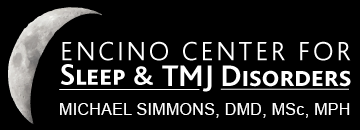Imagine your body as a high-performance machine that spends one-third of its life performing an intricate, behind-the-scenes maintenance routine. This isn’t science fiction—it’s the remarkable process of sleep, a biological marvel that does far more than simply rest our weary minds.

The Nightly Transformation: What Really Happens When We Sleep?
Most of us view sleep as a passive state, but it’s anything but dormant. When we close our eyes, our body enters a complex, highly active mode of restoration and repair. The sleep cycle isn’t a simple on-off switch, but a sophisticated journey through multiple stages that each serve critical functions.
During non-rapid eye movement (NREM) sleep, our body shifts into high gear for physical restoration. Cellular repair accelerates, muscles are rebuilt, and the immune system gets a powerful boost. Meanwhile, rapid eye movement (REM) sleep becomes the brain’s personal editor, sorting through the day’s experiences, consolidating memories, and processing emotional information.
The Biological Orchestra of Sleep
Our sleep is conducted by an intricate biological orchestra, with the circadian rhythm acting as the primary conductor. This internal clock, regulated by melatonin, responds to light and darkness, signaling when it’s time to wind down or wake up. As daylight fades, melatonin levels rise, gradually dimming our internal alertness and preparing us for rest.
Neurotransmitters play a crucial role in this process. Adenosine, for instance, builds up in our brains throughout the day, creating a growing sense of sleepiness. It’s nature’s way of ensuring we don’t push ourselves beyond our limits.
The Profound Health Impacts
The benefits of quality sleep extend far beyond feeling refreshed. It’s a cornerstone of both physical and mental health. Regular, quality sleep:
- Strengthens the immune system
- Supports cardiovascular health
- Regulates metabolism
- Reduces stress
- Enhances emotional stability
- Boosts cognitive performance
Navigating Sleep Disruptors in the Modern World
Our contemporary lifestyle presents numerous challenges to healthy sleep. Blue light from smartphones, irregular work schedules, constant connectivity, and high-stress environments constantly bombard our natural sleep mechanisms.
Substances like caffeine, alcohol, and certain medications can further complicate our ability to achieve restorative sleep. Understanding these disruptors is the first step in creating a more sleep-friendly lifestyle.
Optimizing Your Sleep: A Scientific Approach
Good sleep isn’t about luck—it’s about strategy. Scientific research suggests several key practices:
- Maintain a consistent sleep schedule
- Create a cool, dark, and quiet sleeping environment
- Develop a relaxing pre-sleep routine
- Limit screen time before bed
- Consider sleep-tracking technologies to understand your unique sleep patterns
The Dark Side of Sleep Deprivation
Consistently poor sleep isn’t just annoying—it’s dangerous. Short-term effects include reduced cognitive function, mood swings, and decreased performance. Long-term sleep deprivation has been linked to increased risks of chronic diseases, potential neurological issues, and may even impact life expectancy.
The Exciting Frontier of Sleep Science
We’re just beginning to unlock sleep’s mysteries. Emerging research explores genetic factors in sleep, personalized sleep solutions, and potential breakthrough treatments that could revolutionize how we understand and approach rest.
Your Nightly Reset Button
Sleep is not a luxury—it’s a biological necessity. It’s your body’s most sophisticated maintenance program, working tirelessly to repair, consolidate, and prepare you for the challenges ahead.
By understanding and respecting your body’s need for quality sleep, you’re not just resting—you’re actively investing in your health, performance, and overall well-being.
Tonight, when you lay your head on the pillow, remember: you’re about to embark on an incredible journey of biological restoration. Your body’s reset button is ready to work its magic.
Reclaim Your Rest, Restore Your Life
If you’re in Encino or the surrounding communities of Sherman Oaks, Studio City, and Tarzana, your path to transformative sleep is just a phone call away. We understand the profound toll that sleep deprivation takes on your life—the foggy mornings, the unexplained irritability, the constant battle against fatigue.
You don’t have to fight this battle alone. Reach out to the Encino Center for Sleep & TMJ Disorders today at (818) 300-0070 and take the first courageous step towards reclaiming your nights and revitalizing your entire life.
